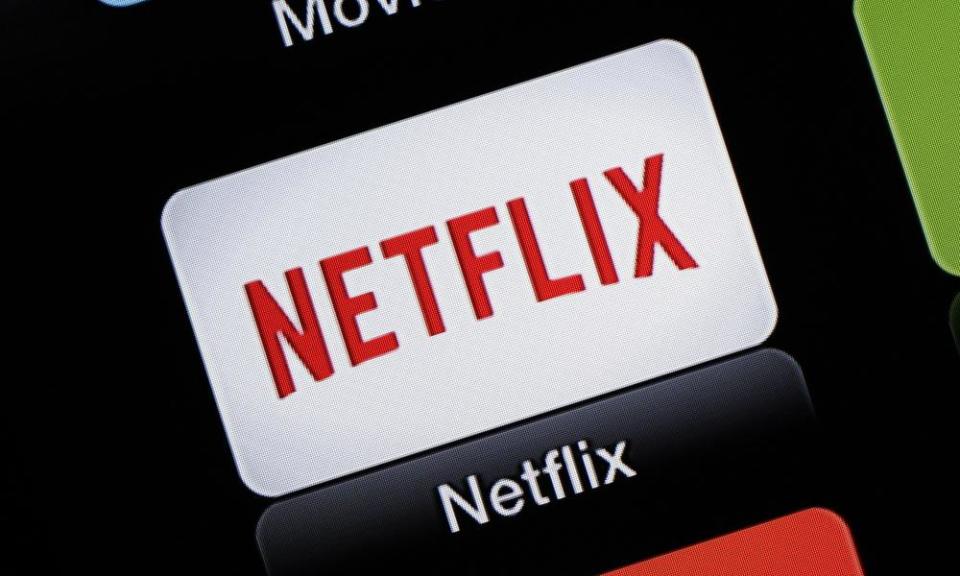Fangs: the lightning rise of Facebook, Amazon, Netflix and Google

From Standard Oil at the turn of the 20th century to IBM and General Motors in the 1970s and General Electric in the 1990s, the US has always produced behemoth corporations that bestride the world. But this is the era of the Fangs, the “big four” of technology, and they are currently growing at breakneck speed.
Facebook, Amazon, Neflix and Google have been roaring away since the turn of this year. Their share prices have climbed so far, so fast, that together they are now worth an extraordinary $250bn more than just four months ago.
To put that sum into perspective, compare it to the value of all the gold mined in the world in a year , which is worth about $115bn. Or look at it another way - $250bn is about the same as the annual GDP of countries such as Venezuela, Pakistan and Ireland.
Together the four firms are now valued on Wall Street at more than $1.5tn, about the same as the Russian economy.
The Fang acronym is not new - it was first coined four years ago by US finance expert and broadcaster Jim Cramer – but the rocket behind their share prices is now making it mainstream.

In fact, it is now slightly out of date, because Google rebranded itself as Alphabet last year, so it should technically be “Fana”. There is, however, one thing no one can argue with. Their share prices, boosted further by positive financial results this week, have delivered huge multibillion-dollar boosts to the personal fortunes of their founders, all of whom still run the companies they dreamed up.
Amazon, which beat forecasts with first-quarter sales of $36bn, has increased in value by $80bn since the start of 2017 to $440bn, meaning the near-17% stake held by Jeff Bezos is now worth $13.5bn more than it was in January. His total wealth now stands at $74bn.
Bezos, who also owns the Washington Post, is now on the brink of toppling the legendary investor Warren Buffett to become the world’s second-richest person after Bill Gates. Both men are spending their money fast, Gates on fighting malaria and other treatable diseases in the developing world, and Bezos on building his own spaceflight company, Blue Origin, with the aim of beating the Tesla boss Elon Musk to Mars.
Facebook, which reports ist results next week, has grown in value by $92bn to $424bn this year. Its founder Mark Zuckerberg’s fortune has increased alongside the share price by $13bn to around $60bn. He owns only about 14% of the quoted shares, but under an unusual voting structure he controls more than 50% of the company.
Alphabet is the gorilla in this room of big beasts. It is now valued at $610bn, up $68bn since the end of December. Its founders, Larry Page and Sergey Brin, each own around 7% each. Their combined stake is worth about $85bn, up $8.5bn since the start of year.

The relative minnow is Netflix, which has climbed in value by $12.5bn since January to $66bn, or three times the value of Sky TV. Reed Hastings, its co-founder and current chief executive, has seen his 1.43% shareholding rise in value by $180m to $944m.
Thomas Husson at the tech research group Forrestersays Netflix has far to go. “Not only have they reached 100m subscribers, they have managed to create a digital relationship with their customers. They know their preferences and are good at acting on the insights they collect on their customers. They are growing fast and are very disruptive.”
What lies behind the astronomical increase in value of the Fangs? To a certain extent, they’ve been buoyed by the same tide that raised US shares to record highs this year, the election of Donald Trump. The new president may threaten trade wars and real wars, and prompt unheard-of levels of domestic unrest, but to Wall Street investors, all that pales in comparison to a couple of policy proposals that have been on the cards since the day he won the Republican nomination - lower corporation taxes and a tax holiday on repatriated cash.
The US has one of the highest levels of corporation tax in the world, up to 35% with some states charging more on top. For internationally competitive companies, that creates a strong motivation to not bring income earned overseas back to the US. The Fangs have huge international earnings.
One proposed solution, favoured by the Republican party for decades and periodically enacted, is a repatriation tax holiday - a fixed period during which money brought onshore is taxed less. The last holiday in 2004 led to $362bn being brought back to the US at a reduced tax rate of 5.25%. Paradoxically, each tax holiday increases the need for the next, because companies start holding ever greater amounts of their tax offshore in the expectation that the next Republican government will announce a new one.
In the expectation of just that, which would allow a flood of onshored income to boost dividend payouts and share buybacks, investors have been buying up stocks in companies with foreign holdings.
But the Fangs also have their own unique benefits. In a tech industry with a globalised supply chain fighting anti-globalisation movements, where businesses are finding it tough to provide big improvements on devices from laptops to smartphones, and where the next big thing keeps failing to take off they sell nothing but binary code sent over the net.

All four are subtly different, but firmly overlapping industries. Facebook and Google are primarily advertising companies. One sells things to you while you’re looking for information, the other while you’re chatting to friends. They’re also both in the business of user-generated content, encouraging their customers to upload fun, shareable videos to YouTube and Facebook so they have something to put advertising against – and keep you coming back for more.
In the content industry, the two also compete against Netflix and Amazon, which both produce web video far more directly, with millions invested in the creation of high-quality long-form drama and comedy. Amazon competes against Google in the shopping business, because more and more of us skip the middleman when we want to buy something.
And then there are the enormously profitable back-ends. Amazon Web Services makes more profit selling cloud computing services to other companies than it does selling things to you or I, and Google Cloud makes almost as much money doing the same thing to its own startups.
None of Fangs have reached the astronomical levels of profitability seen at Apple, which has mastered the art of building expensive technology and selling it for eye-watering levels of profit. Apple, however, also has a weakness. When it comes to its revenue, it has only one really huge product: the iPhone.
The Fangs, by contrast, are diversified. They can sell their stuff wherever there is internet access, they don’t have to worry about pesky supply chain issues and they’re aiming for the top of the pile.

 Yahoo Finance
Yahoo Finance